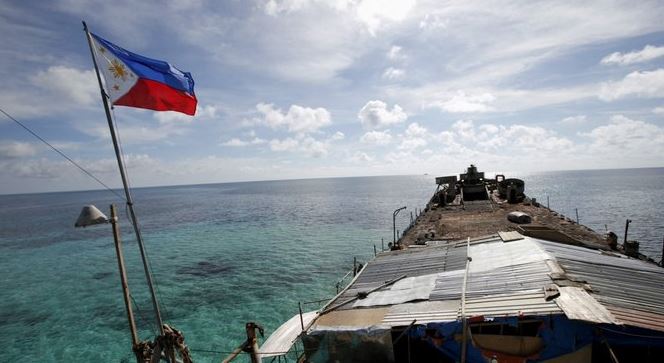The United States is considering the possibility of escorting Philippine vessels during resupply missions in the contentious South China Sea, according to Admiral Samuel Paparo, commander of the U.S. Indo-Pacific Command. While Paparo described the move as a “reasonable option,” he emphasized that it would require thorough consultation between the U.S. and the Philippines before any action is taken.
This consideration comes against a backdrop of escalating tensions between China and the Philippines, following a recent maritime collision between their vessels in the South China Sea. Both nations have accused each other of being responsible for the incident, which occurred shortly after they had agreed to cooperate on reducing tensions and managing disputes in the region.
Also Read: Japan Condemns Chinese Spy Plane Incursion as Utterly Unacceptable
China’s Coast Guard accused a Philippine ship of ignoring multiple warnings and intentionally ramming into a Chinese vessel near Sabina Shoal early Monday morning, describing the incident as “unprofessional and dangerous.” In response, the Philippines disputed China’s account, accusing Beijing of “imposing its own version of the facts.” According to Philippine officials, two of their coast guard vessels encountered “unlawful and aggressive maneuvers” by Chinese ships while on a mission to deliver supplies to Filipino personnel stationed on two islands.
Jonathan Malaya, spokesperson for the National Security Council and Manila’s South China Sea task force, stated that the aggressive actions by Chinese vessels led to collisions, causing damage to the Philippine Coast Guard vessels Cape Engano and Bagacay. These vessels were en route to resupply personnel on Flat Island (Patag) and Lawak Island when the confrontation took place.
China’s Coast Guard spokesperson, Gan Yu, claimed that the Philippine vessels had “illegally intruded” near Sabina Shoal, accusing the Philippines of repeated provocations and violating temporary agreements between the two countries.
This latest clash follows an incident on August 11, where the Philippines condemned China’s “unjustified, illegal, and reckless” actions against a Philippine aircraft conducting patrols in the disputed South China Sea. The area in question, including the Sabina Shoal (Escoda Shoal) in the Spratly Islands, is claimed by China, the Philippines, Taiwan, and Vietnam.
China continues to assert expansive claims over the majority of the South China Sea, despite a 2016 ruling by the Permanent Court of Arbitration in The Hague that rejected Beijing’s claims as legally unfounded.
Key Points
U.S. Considers Escorting Philippine Vessels: The U.S. is considering escorting Philippine vessels during resupply missions in the South China Sea, as per U.S. Indo-Pacific Command commander Admiral Samuel Paparo.
Rising Tensions: This consideration follows a recent collision between Chinese and Philippine vessels in the South China Sea, with both nations blaming each other for the incident.
China’s Accusation: China’s Coast Guard claimed that a Philippine ship ignored warnings and intentionally rammed into a Chinese vessel near Sabina Shoal, calling the actions “unprofessional and dangerous.”
Philippine Response: The Philippines disputed China’s account, accusing Beijing of “aggressive maneuvers” that led to collisions damaging two of their coast guard vessels en route to resupply missions.
Previous Incidents: The collision is part of ongoing tensions, including an August 11 incident where the Philippines denounced China’s actions against a Philippine aircraft conducting patrols in the disputed area.
Disputed Territory: The Sabina Shoal in the Spratly Islands, where the collision occurred, is claimed by China, the Philippines, Taiwan, and Vietnam, with China asserting expansive claims despite a 2016 international court ruling against them.



